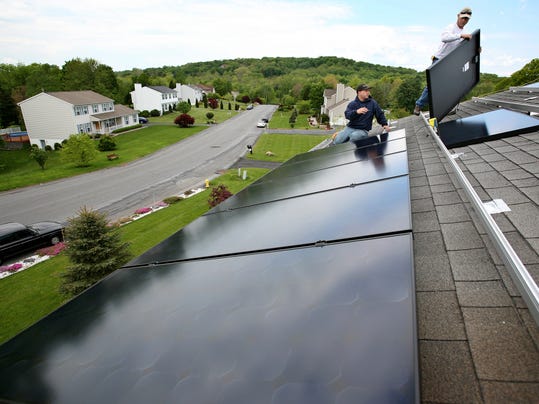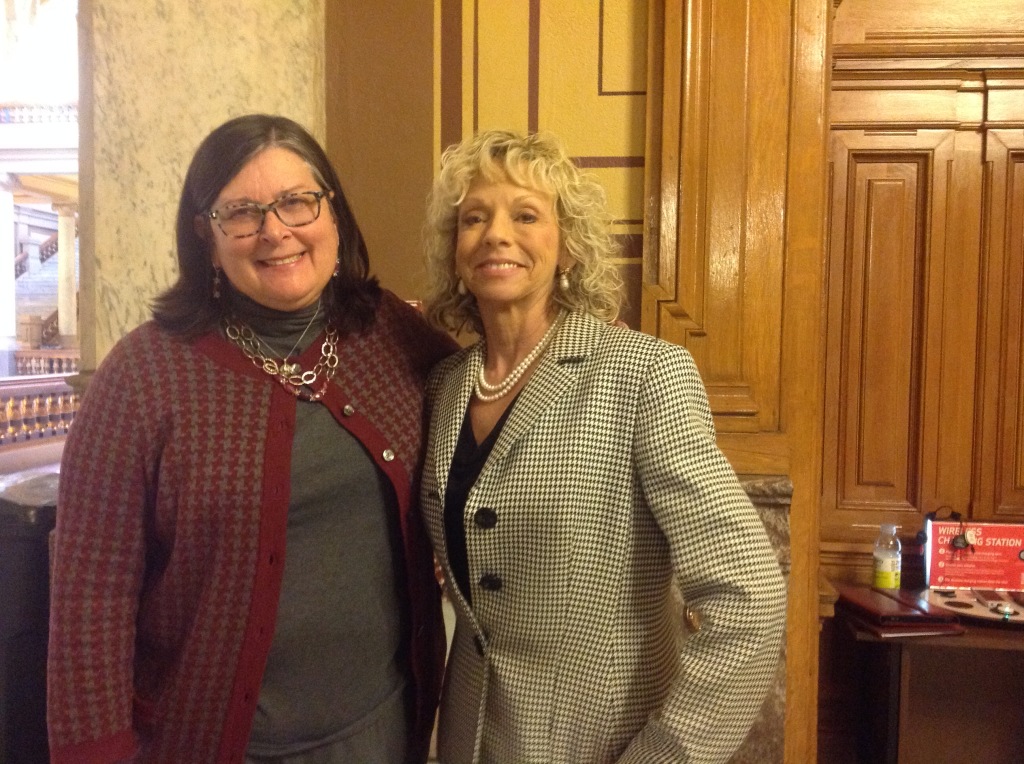Indiana Rep. Heath VanNatter (R-Kokomo) is Vice Chairman of the House Utilities, Energy and Telecommunications Committee which heard HB 1320.
Net metering bill dies in House of Representatives
Posted: Wednesday, February 25, 2015 4:45 pm
A net metering bill that many felt would stymie the growth of solar energy in Indiana appears to have died Wednesday in the House of Representatives.
House Bill 1320, which aimed to change the way solar panel owners are credited for the energy they produce, was not heard on the House floor Wednesday, the last day for legislation to clear the chamber.
“Nothing is completely dead until the session is over, but it is definitely dead in the House,” said Utilities and Energy Committee Vice Chairman Rep. Heath VanNatter, R-Kokomo, about the controversial bill authored by Rep. Eric Koch, R-Bedford.
Under the current system of net metering, owners of small-scale solar installations are required to pay only for the net amount of energy they consume, and if owners produce more energy than they use, they are then credited at the retail price of electricity. The consumer also pays a fee for connection to the electrical grid.
Passage of the bill would have allowed utilities to buy energy at wholesale prices, potentially lowering the amount of credit received by up to 70 percent, and set a fixed rate for all alternative energy users.
A slight possibility remains that portions of HB 1320 could be added to an amendment on a similar Senate bill, but VanNatter described the likelihood of such action as a “long shot.”
“The bill would have to be very germane, and I really don’t know anyone who is qualified to go through the whole process, which is very complex,” said VanNatter.
The decision not to move the bill onto the House floor was made by House Speaker Brian Bosma, R-Indianapolis, who felt HB 1320 had a lack of overall support, according to Communications Director Tory Flynn.
“The way the committee was handled also gave him pause,” said Flynn.
Throughout the committee hearing, a stream of opponents spoke against the bill, but it was those who didn’t speak that provided the true impact, said Steve Francis, Hoosier Chapter Chair of the Sierra Club.
“The testimony was cut off with still about 25 people ready to speak in the committee meeting,” Francis said. “We pressed that with Bosma concerning the bill and the need for a fuller hearing. A number of solar constituents were not allowed to speak, and they had come from the corners of the state.”
Francis also spoke about the bill's perceived lack of support amongst House representatives and the need for a deliberate, comprehensive evaluation of the bill and Indiana’s solar energy market.
“The concerns expressed by Koch aren’t prevalent right now, because there is no sort of emergency,” Francis said. “This bill and what it involves needs to be looked at in a more deliberative manner. There is a lot that needs to be studied and reviewed.
“Rarely is this work done within the process of legislation.”
Download this article HERE>
Net metering bill dies in House of Representatives - Kokomo Tribune_ Local News_2015-02-25





